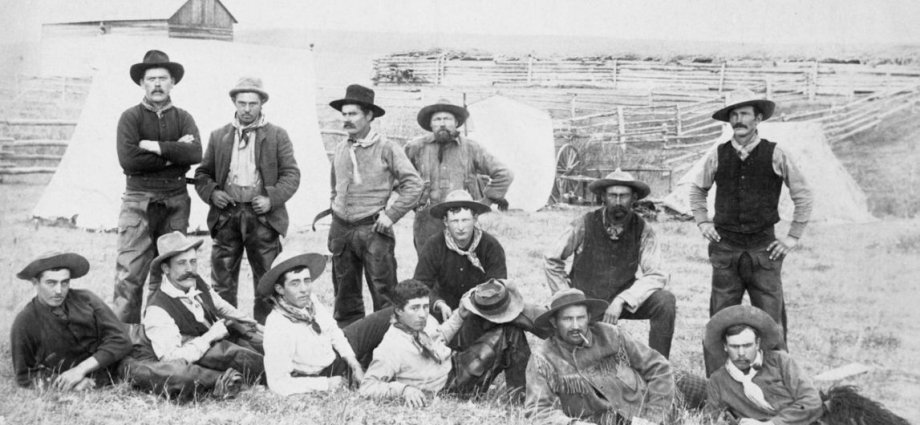There’s a black and white photograph of an earnest young man that hangs from the vestry wall of the United Reformed Church in Teignmouth. Around him in that little room are portraits of other ministers, but none of them seems to possess the magnetism or gripping backstory that the enigmatic Rev Stanley James has.
When he took up the post at the age of 30 in May 1901, his congregation knew little of his exotic past. But soon they would learn that their new pastor had been a cowboy, shepherd, tramp and navvy in Canada, and then soldier and war reporter in Puerto Rico. These tales of adventure and derring-do would keep them on the edge of their seats for the next five years.
Stanley was a natural revolutionary. Challenging and difficult ideas were part of his make-up. But his years in Devon, when he married his fiancée Jess and started a family in the little terraced house they rented in Lower Brimley Road, were the happiest of an otherwise turbulent life. He would always retain a soft spot for the peaceful resort where he started his ministry.

How do I know this? The unorthodox Stanley (1869-1951) is my mother’s father and my biography of him – Between Heaven and Earth: A Journey with my Grandfather – has just been published.
Once settled in, Stanley wasted no time in making his mark. Apart from doubling the size of the congregation, he headed up ecumenical committees which sought unity among different denominations, established a men’s group, expanded Sunday school activities and set upliterary and debating societies which discussed the pressing topics of the day. One meeting, according to the Exeter and Plymouth Gazette, debated Women’s Suffrage with the motion being defeated while – somewhat surprisingly – “most of the ladies decided the issue in the negative”.
He and other Nonconformist ministers hit the headlines for non-payment of the education element of the rates because they opposed the Conservative government’s bill which favoured Church of England schools. He preached in other churches and invited fellow pastors to Teignmouth. My research was helped by Teign Heritage, who unearthed a poster advertising my grandfather’s ordination ceremony in 1903.
But it was Stanley’s stories from the Canadian West which were the biggest draw. He told how in the 1890s he rounded up the cattle on a ranch in Alberta, guarded 2,000 sheep against attack by coyotes, worked as a reporter on the Calgary Herald, helped build the Crows Nest Pass Railway and jumped trains as a hobo on the 2,000 mile journey to Toronto. He then enrolled in the US army and saw action against the Spanish in Puerto Rico while doubling up as a foreign correspondent before nearly dying of yellow fever. It was heady stuff for the good folk of Devon.

During the summer of 1905 a deacon from a church in London was taking his annual holiday in Teignmouth. He attended Stanley’s church and was impressed by what he saw and heard. His church was looking for a new minister, so he recommended my grandfather for the post, which he accepted. When Stanley left he was presented with a gold watch, chain and cheque, and the Rev W. Scott of Shaldon gave him two volumes “for remembrance”. He seems to have been much loved.
But the happy days of Teignmouth would never be repeated, and the old restlessness returned. Over the next 10 years in north-east London, Stanley embraced virtually every progressive political, cultural and religious movement going. He supported communism, women’s emancipation and pacifism in the First World War, all of which went down like a lead balloon.
Worse was to come. Enter three beautiful women, each of them part of the radical arm of Trinity Church, Walthamstow. Stanley, by now a father of seven (my mother was number five), conducted an affair with one of the girls and had passionate liaisons with the other two.
I found this out after reading hundreds of these women’s secret letters and diaries in the Women’s Library of the London School of Economics. One of the letters by Minna Simmons, a local nurse, was included in the 1994 Virago Book of Love Letters. There is no space here to go into these documents in detail, but in my book I quote them extensively and they make amazing reading. Quite how much family, friends or Stanley’s congregation knew I have no way of knowing, but by December 1916 he had resigned.
There followed a tumultuous period in which he worked for pacifist organisations and shared an office with the philosopher Bertrand Russell before converting to Catholicism in 1923. He became close friends with the writer G.K.Chesterton and turned himself into one of the world’s leading Catholic commentators, with nine books to his name.
Although he wasn’t in the front line of 20th century thinkers, nevertheless his religious writing, conducted against a backdrop of extraordinary adventure, earned him an obituary in The Times on his death in 1951.
One thing is certain: in what was often a troubled and topsy-turvy life, he would always remember Teignmouth for the peace, happiness and fulfilment he experienced there.
by Robert Nurden










